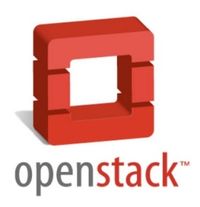
Cloud computing strips away things that had been roadblocks to scale. Operating systems. Database sizes. The assignment of specific functions to specific machines – a web server, a database server, an authentication server.
Instead, through virtualization, all system resources become available to programs as they are needed. If there is a “rush to the rail” of your web services or database, or a particular job needs all your resources now (calculating trends in Wikipedia entries going back years, for instance), that can be done.
Once you have the paradigm down, once your stuff is aligned with it,then computing becomes a utility, power and storage mere light and heat you can turn on (and most important, turn off) like you would a light switch. Amazon's EC2 has defined the space, but there are other ways to define it, and the greatest benefits come when things are derived in an open, transparent way, so everyone involved in a problem can work on it – so programming becomes a utility as well.
Needless to say, this threatens a lot of people, a lot of jobs. So there is a concerted effort underway to confuse the issue, to either make cloud computing proprietary or make it appear that it's just another mainframe.
Most big vendors, including Oracle and Apple, want to stand in the way of cloud computing, because it breaks down proprietary advantages, and the need for you to maintain all your own infrastructure. So Apple wants you to think it's just a giant file host. Oracle wants you to think, if this idea is so good, you need your own private cloud – which means you need to spend just as much on computing as before.
All this is a way to protect current ways of doing business for as long as possible.
Don't be fooled.

Visit sites like openstack. Check out Apache Hadoop. Build your own curriculum in this area, learn it well, and you'll be ahead of the game.
What clouds tell us, more than anything, is that the future can't be bottled or packaged the way the past was. If you want to be part of it, you need to get into it. Fly.










Are there specific skill sets you’d recommend? Is there a certification path?
Are there specific skill sets you’d recommend? Is there a certification path?
You're asking the wrong question. The person who becomes the first "expert" isn't following someone else's path. They're learning it on their own. By the time there is a certified course on any tech subject, its market value has plummeted to a small fraction of what it was.
An analogy can be made to security. The highest value of a security hole is found just before it's found. Once the answer to the problem is disseminated, the value plummets — not to zero, but to a tiny fraction of its previous figure. The same can be said of tech skills. The time to get them is when they're hot.
Dana
You're asking the wrong question. The person who becomes the first "expert" isn't following someone else's path. They're learning it on their own. By the time there is a certified course on any tech subject, its market value has plummeted to a small fraction of what it was.
An analogy can be made to security. The highest value of a security hole is found just before it's found. Once the answer to the problem is disseminated, the value plummets — not to zero, but to a tiny fraction of its previous figure. The same can be said of tech skills. The time to get them is when they're hot.
Dana
Very true… and the reason I enjoy this field. I’ve been at my current gig 7 years now though and managed to push my way into more of a management role. The up side is great pay. The down side is my technical skills have withered on the vine.
I want to refresh those skills but not sure the directions to go now. I understand the basic stack infrastructure but I’m not sure what I would focus on in detail.
I’m not a developer and don’t really have the mind set for it. I like to build and it’s what I’ve always done as a network engineer.
The cloud is changing my current job already; from an architect to someone just flipping that on/off switch. I don’t want to be behind and so I need to learn the skills to be an architect again.
Do I focus on the LAMP stack? Should I just get some boxes together and try to implement an OpenStack setup?
Very true… and the reason I enjoy this field. I’ve been at my current gig 7 years now though and managed to push my way into more of a management role. The up side is great pay. The down side is my technical skills have withered on the vine.
I want to refresh those skills but not sure the directions to go now. I understand the basic stack infrastructure but I’m not sure what I would focus on in detail.
I’m not a developer and don’t really have the mind set for it. I like to build and it’s what I’ve always done as a network engineer.
The cloud is changing my current job already; from an architect to someone just flipping that on/off switch. I don’t want to be behind and so I need to learn the skills to be an architect again.
Do I focus on the LAMP stack? Should I just get some boxes together and try to implement an OpenStack setup?
Here's what I would do. Go to the open source projects in the cloud,
look at what they have, gain an understanding on it, interact with
the people there for a while, and then consider doing some
management guides. Here's what you do to implement OpenStack, or
Hadoop. A complete corporate idiot's guide to the cloud stack.
And then watch the offers come in.
You don't have to be a programmer to be important in this space. You
can be a technical writer, you can be a commenter, you can find
bugs. And any understanding of how all this works will bring you
back incredible value.
I didn't know you were already so experienced, but since you are I
think you have the technical chops needed to go into any of these
directions. Choose one that interests you.
Dana
Here's what I would do. Go to the open source projects in the cloud,
look at what they have, gain an understanding on it, interact with
the people there for a while, and then consider doing some
management guides. Here's what you do to implement OpenStack, or
Hadoop. A complete corporate idiot's guide to the cloud stack.
And then watch the offers come in.
You don't have to be a programmer to be important in this space. You
can be a technical writer, you can be a commenter, you can find
bugs. And any understanding of how all this works will bring you
back incredible value.
I didn't know you were already so experienced, but since you are I
think you have the technical chops needed to go into any of these
directions. Choose one that interests you.
Dana
Cloud computing is one of the efficient way of the organizing the computer resources. If any one have cloud skill then their future is very secure. Cloud computing becomes most poplar now days.
Cloud computing is one of the efficient way of the organizing the computer resources. If any one have cloud skill then their future is very secure. Cloud computing becomes most poplar now days.